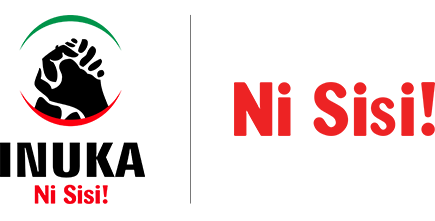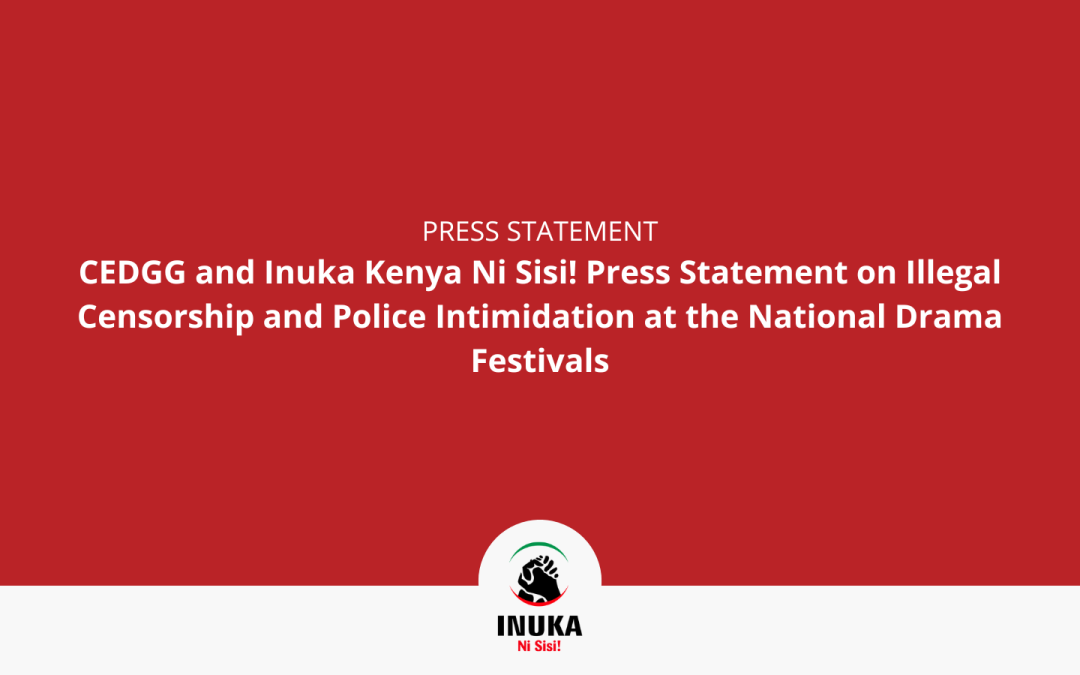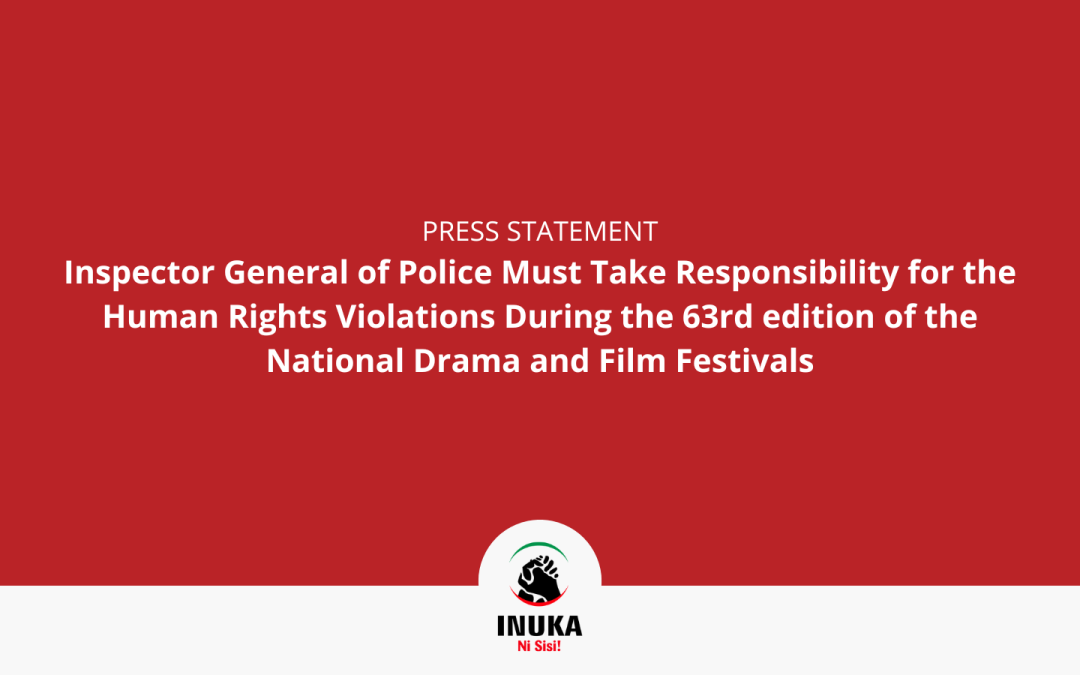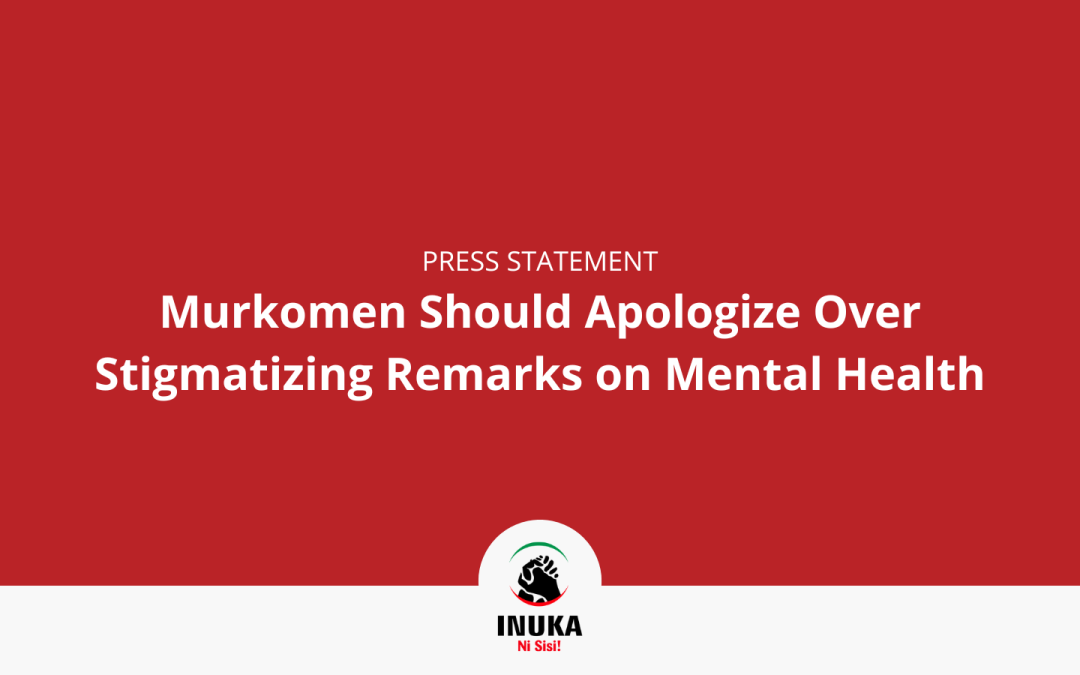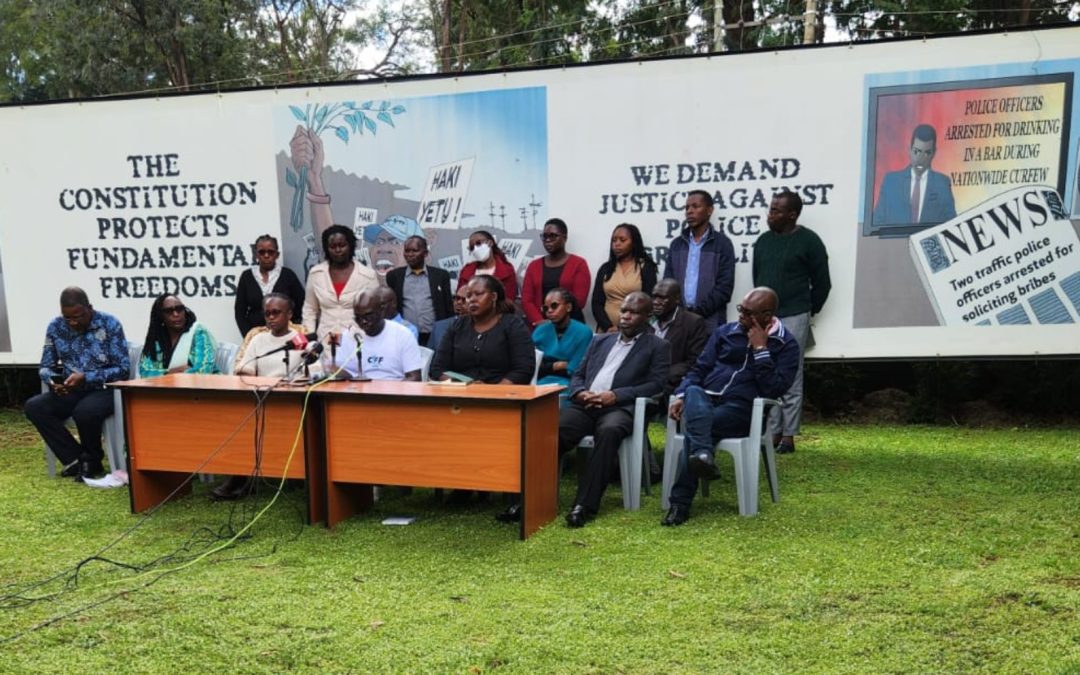
Kenya’s Slide Into Repression Deepens Amid Mounting Crises
This year, CIVICUS downgraded Kenya’s civic space rating from “obstructed” to “repressed.” This follows rampant human rights abuse by state agents.
Our country is bleeding. Kenyans are dying in hospitals due to the collapse of healthcare services, exacerbated by the disastrous Social Health Authority scam.
In universities, students are suffering under a deliberately broken funding model. Schools face chronic delays in receiving capitation funds. One by one, the pillars of our nation are crumbling.
At the international level, Kenya’s diplomatic standing lies in tatters. Our image across Africa and globally is stained. The William Ruto regime and its destructive policies drive our nation into despair.
According to InfoTrak, 83 per cent of Kenyans believe the country is headed in the wrong direction, with 69 per cent directly blaming Ruto. As of December last year, his approval rating had plummeted to just 19 per cent.
Since January this year, the situation has only worsened. The regime has intensified its crackdown on dissent, even targeting schoolchildren for performing a play that challenged the state on accountability and governance.
Violence
Security excesses
Between January and September 2023, the Independent Medico-Legal Unit documented 228 cases of police torture, 67 cases of extra judicial killings and one case of enforced disappearance.
According to the Kenya National Commission on Human Rights, police killed 63 people and injured 610 others during the Gen-Z- protests between June and November 2024. KNCHR also reported that 1,376 protesters were arbitrarily arrested, and 74 individuals forcibly disappeared. As of today, 26 people who disappeared are still missing, and the culprits are yet to be held to account.
However, data from Human Rights Watch, Kenya Human Rights Commission, and IMLU shows the numbers of those killed, disappeared, and abirtraty arrested could be higher. For instance, the IMLU report shows 89 cases of enforced disappearances during this period. We are conducting more research into these abuses.
The units responsible for these atrocities, according to HRW, were allegedly drawn from the Directorate of Criminal Investigation, supported by the Rapid Deployment Unit under the Administration Police, military intelligence, the Anti-Terrorism Police Unit and the National Intelligence Service.
In December 2024, police arrested 10 protesters during the anti-femicide march, and many others were subjected to excessive force, resulting in unwarranted injuries and further undermining their right to peaceful assembly.
December 2024 marked a chilling escalation in state repression across Kenya. From the cancellation of the Mathare Reggae Festival due to police intimidation, targeted teargas attacks on opposition figures and the abduction of citizens over AI-generated satirical images of President Ruto, the regime intensified its crackdown on dissent.
Peaceful protesters were met with arbitrary arrests and legal harassment. At the same time, even sacred spaces like churches were not spared; police stormed a Nyandarua church and teargassed worshippers on New Year’s Eve.
Cross-border violations have also increased. Kenya is becoming a hub for politically motivated abductions of foreigners, including Tanzanian activist Maria Sarungi Tsehai, Ugandan opposition leader Kizza Besigye, and others from South Sudan, Ethiopia, Turkey, and Uganda. Thirty-six Ugandans were abducted in Kisumu alone.
The recent injury and intimidation of journalists reporting on the incidents at the National Drama Festivals in Nakuru further exposes a growing culture of state repression that must be urgently addressed. Additionally, the teargassing of students from Butere Girls High School by police is a stark reminder of a longstanding and deeply troubling pattern of brutality against children in Kenya.
We demand that:
- There must be an urgent, impartial investigation into all cases of enforced disappearances, police killings, and abductions of protesters and critics of the regime. Those found culpable, including high-level command, must be held accountable for their crimes. This regime must immediately cease the politicization of security agencies and disband elite police units involved in unlawful operations.
- The government must launch an independent investigation into the cross-border abductions of refugees, and political and foreign activists. It must adhere to international treaties on asylum, non-refoulement, and transnational justice, and suspend or sever security cooperation with countries implicated in rights abuses.
- The government must launch an independent investigation into the cross-border abductions of refugees, and political and foreign activists. It must adhere to international treaties on asylum, non-refoulement, and transnational justice, and suspend or sever security cooperation with countries implicated in rights abuses.
Political violence
Activation of political goons to disrupt has taken root, and there has been near-zero accountability from the government. The targets have mostly been anti-government critics.
As we move towards the 2027 general election, there is a worrying trend of emerging political intolerance and the use of outlawed gangs. It happened in Limuru on March 20 when goons invaded a traders’ meeting that aimed to stop excessive levies from the county government of Kiambu. It also happened during William Ruto’s rallies in Nairobi in early March, when Kenyans were robbed and attacked by armed gangs. Former Deputy President Rigathi Gachagua has also had his meetings disrupted by hired goons. The same fate has also befallen many political and burial events nationwide.
These trends highlight the systemic misuse of force and lack of accountability in law enforcement. The use of non-lethal weapons by security operators during protests, including tear gas, water cannons, and batons, has been enhanced. It remains unclear what guidelines the police use to acquire the said weapons and whether they are up to international standards. No law exists in Kenya, and there has been no attempt to regulate the use of these non-lethal weapons.
We demand that the government:
- Disband and prosecute all outlawed gangs and political goon squads used to disrupt public events, protests, and political gatherings.
- Hold political leaders and their allies accountable for inciting, financing, or enabling political violence and thuggery.
- Ensure police independence and neutrality ahead of the 2027 general election.
- Guarantee protection of civic and political space: all Kenyans must be free to assemble, associate, and express dissent without fear.
Femicide and gender-based violence are spiralling out of control
Between January and March this year, 129 women were murdered, according to the National Police Service and National Crime Research Center, which was released on April 9, 2025. In 2024, 579 femicide deaths were recorded.
This crisis is a state’s failure to protect women and prosecute perpetrators. Law enforcement remains complicit, either through inaction, blaming victims, or outright collusion with abusers. Informal settlements and rural communities are especially vulnerable. The government has set up a task force to address femicide and GBV.
Under both international law and Kenya’s Constitution, the state has a duty to prevent gender-based violence, protect victims, investigate crimes, and hold perpetrators accountable. Yet, the police frequently neglect or mishandle cases. Despite laws like the Sexual Offences Act and the Protection Against Domestic Violence Act, enforcement remains weak
We demand that:
- Femicide must be included as a distinct offence under the Penal Code to ensure legal clarity and strengthen judicial response to gender-based killings.
- There need to be dedicated funds allocated for forensic investigations and training on preservation of evidence for police officers.
- A dedicated prosecutorial unit for GBV must be created to fast-track cases, minimize delays, and reduce opportunities for corruption.
- The National Police Service must publish regular femicide case reports, including statistics on reports, investigations, arrests, and convictions, to improve accountability and transparency.
- The government must provide trauma counseling services at every police station for GBV survivors. It must also offer mental health support to law enforcement officers who face secondary trauma from handling such cases, to avoid burnout and improve how the cases are handled.
Social-economic rights
The education sector is collapsing
Every tier of Kenya’s education system—from ECDE to universities—is under strain. Devolved functions of education are underfunded, understaffed, and ill-equipped. At the national level, basic education is plagued by curriculum confusion, deteriorating infrastructure, and chronic underfunding.
TVETs and universities are especially hard hit, with outdated equipment and teaching technology, bloated debts, poor governance and mismanagement of public universities due to state interference. The new university funding model has left students stranded and institutions unable to function effectively.
Despite a court order declaring the new university funding model unconstitutional, the Executive is hell-bent on implementing it. Still, despite Education CS’s declaration, certificate withholding continues to be unabated.
We demand the following:
- The government must establish a comprehensive national education support fund to ensure no child is left behind, especially those from low-income families, marginalized communities, and persons with disabilities. The fund should cover tuition, learning materials, uniforms, and other essential expenses to dismantle economic barriers to education.
- The government must invest in continuous professional development for teachers, set and enforce national quality standards across all levels of education, and standardize school infrastructure and upgrade learning environments nationwide.
- The Teachers Service Commission must retain its constitutional functions without political interference. State House and Members of Parliament must cease the illegal issuance of appointment and promotion letters to teachers, which undermines meritocracy and destabilizes the sector.
- All education policies and practices must align with the national values and constitutional rights, including free and compulsory basic education for every child, and access to education and training for everyone.
Health
Despite health being a key pillar of any nation’s stability and development, Kenya’s public health system has effectively collapsed. The transition from the National Health Insurance Fund (NHIF) to the Social Health Authority (SHA), while packaged as a path to Universal Health Coverage, has instead created confusion, exclusion, and coercion.
According to the Ministry of Health, over 19 million Kenyans have been registered, yet fewer than four million actively contribute, most of them in formal employment. The rest, particularly the poor and informal workers, are being pushed into a system they neither understand nor benefit from.
A GeoPoll survey (2025) shows that 75 per cent of Kenyans believe the SHA is riddled with corruption and mismanagement, and only 27 per cent clearly understand how it functions.
We demand the government must:
- Audit and overhaul the NHIF-to-SHIF transition to ensure transparency and functionality.
- Clear pending bills owed to private service providers and accelerate disbursement of funds.
- Protect the right to health by ensuring universal, accessible, and quality healthcare for all.
Housing
The Business Laws (Amendment) Bill is currently in the public participation stage before the Senate. Among its proposals are amendments to Sections 90 and 96 of the Land Act that aim to reduce the period between loan default and foreclosure from 90 days to 45 days and to cut foreclosure notice from 40 days to 20 days for beneficiaries of the Affordable Housing programme. Why does this matter? The intended beneficiaries are low-income Kenyans, some of whom have already vacated informal shelters to make way for these projects and have been promised the first right of purchase. Instead of receiving legal protection, they now risk being stripped of their homes more swiftly.
Shouldn’t the law offer greater safeguards for the vulnerable, not fewer? Who stands to benefit from fast-tracking the eviction of the poor? Is there a predatory interest waiting in the wings, eager to pounce on those struggling to pay?
Kenyans have until next Tuesday to submit memoranda to the Senate opposing these amendments. Let your voice be heard.
Numerous judicial pronouncements have also argued that people should be compensated and given alternative housing. However, people have been given eviction orders in informal settlements in Nairobi and Mombasa.
We demand that there be no further evictions without giving adequate notice, compensation, and alternative resettlement.
We demand that the government to:
- Withdraw the proposed amendments to Sections 90 and 96 of the Land Act that reduce foreclosure notice periods.
- Enforce judicial pronouncements that require compensation, adequate notice, and alternative housing before any evictions.
- Suspend all evictions in informal settlements until legal and humane processes are followed.
Land rights
Despite heavy investment in digitising land records, service delivery is still poor. According to the Commission on Administrative Justice, service delays at Land Registry across the country remain the most serious bottleneck, with some complaints taking years to resolve. While 263 cases were addressed within three years, 119 dragged on for four to 15 years, eight cases took up to 25 years, and two remained unresolved for over 25 years.
We demand the government to:
- Ensure immediate, unconditional issuance of title deeds to rightful landowners.
- Fix the broken digitized land system and establish accountability for delays and inefficiency in land registries.
- Resolve all pending land cases with urgency, especially those delayed for over a decade.
Freedom of association, assembly and expression
Despite operationalizing the PBO Act on May 14, 2024, the government has yet to adopt the regulations to facilitate its implementation. Implementation now relies solely on development partners and civil society organizations. Alarmingly, 2,802 PBOs were deregistered in a show of hostility to independent organizing.
Legislative threats continue to loom. The Assemblies and Demonstration Bill is expected to pass in 2025 in its current repressive form. The Whistleblower Protection Bill remains stalled, and the 2024 Computer Misuse and Cybercrimes (Amendment) Bill threatens free expression by extending unchecked state surveillance over digital platforms. The Public Participation Bill 2024 is progressing slowly due to limited funds allocation by the government.
Since the June 2024 protests, the government has directly clamped down on media agencies, and law enforcement officers have physically attacked journalists and even damaged their equipment as they feature public stories. In 2025, the government cancelled advertising on media stations that seem to feature stories that criticize the government, and this indirectly affects freedom of the press and access to information for the general public.
At the same time, constitutional commissions and oversight institutions are under siege. Budget cuts, politically motivated appointments, and delayed confirmations have crippled bodies meant to safeguard democracy.
Corporations continue to violate human rights with near-total impunity. For instance, Safaricom is implicated in sharing customers’ location data with law enforcement agencies in operations that may have resulted in enforced disappearances, extrajudicial killings and renditions. This brazen violation of privacy has had a chilling effect on civic space.
Meanwhile, there is a systematic campaign to silence dissent. Whistle-blowers and human rights defenders face threats, surveillance, and abductions. Independent oversight institutions have been weakened or hijacked. The attempted removal of Auditor-General Nancy Gathungu after her revelations of financial irregularities is a disdain for transparency.
We demand that:
- The government must end the intimidation, surveillance, and criminalization of activists and independent media, and abolish efforts to criminalize dissent, including through the Computer Misuse and Cybercrimes (Amendment) Bill.
- Parliament must withdraw the repressive Public Assemblies and Demonstration Bill and align legislation with Article 37 of the constitution and international human rights standards. It must also ensure police provide facilitative, not repressive, support during public demonstrations.
- Safaricom must be held accountable for illegally sharing customers’ data with law enforcement officers in operations that may have led to enforced disappearances, extrajudicial killings and renditions. The unholy alliance between Safaricom and the government must stop.
Public finance accountability
Corruption continues to strangle Kenya’s future
Recent analyses describe Kenya as exhibiting classic “state capture,” where a well‑organised elite has repurposed the Presidency and Treasury into a “temporary zone for personalized appropriation, subverting constitutional checks and operating outside public accountability.
In infrastructure, the tripling of costs on the Standard Gauge Railway—and the absence of credible project audits—reflects similar elite rent‑seeking. Citizens have been treated to the discharge of people accused of mega-corruption in several instances, including the Arror Kimwarer dam scandal.
This is coupled with allegations brought forward by the former attorney general and the former deputy president of loan contracts being proposed to be signed in airport corridors and dealings on housing, health and digital public infrastructure being cut with oligarchs without due process.
Despite repeated public commitments to accountability, corruption remains a significant barrier to realising social and economic rights. Kenya’s recent scores on the 2024 Corruption Perceptions Index released by Transparency International, at 32 out of 100, illustrate a growing public frustration with slow and often ineffective prosecutions, particularly involving powerful individuals.
Notably, there is a new age of corruption packaged as public-private partnerships, manifested through, among other deals, the Arrow and Kimwarer dam scandal and the Adani deals (JKIA and Ketraco). These trends continue to erode the rule of law, accountability and credibility of oversight institutions, with Parliament and the Executive, disregarding reports from the constitutional institutions that are the last line of defense for public finance accountability.
That said, we acknowledge recent progress, including high-profile convictions of former Kiambu governor Ferdinand Waititu for procurement-related bribery and his Nyandarua counterpart, Daniel Waithaka, for violating procurement laws. These convictions signal a judiciary more willing to confront impunity. However, we remain concerned about the High Court’s decision to suspend the prosecution of the Thika Chief Magistrate despite corruption findings.
We commend the Auditor-General for uncovering irregularities in SHA’s procurement of the digital health system. We also welcome proposals under the Anti-Corruption Laws (Amendment) Bill 2025 to fast-track the resolution of cases and streamline appeals.
Further, we acknowledge the recent High Court ruling striking down the National Government Constituencies Development Fund (NG‑CDF) as unconstitutional, further exposing the chronic misuse of resources intended for education and local development.
We demand that:
- The Executive must stop political interference in constitutional offices like the Office of the Auditor-General, Controller of Budget, and EACC. Parliament and the Executive must also protect the tenure and independence of officers like Nancy Gathungu and ensure their reports lead to prosecutions, not retaliation.
- The Office of the Auditor-General must conduct timely, independent audits of all government programs, especially high-risk initiatives like the Affordable Housing Project, SHIF, and the Bomas expansion via public-private partnerships. These audits must be made public to address widespread concerns over conflicts of interest and awarding tenders to politically connected individuals. No initiative should be beyond scrutiny. Where evidence of corruption is found, those responsible must be prosecuted.
- The state must fully fund and protect the independence of key institutions such as the EACC, ODPP, and the judiciary.
- Parliament must pass the Whistleblower Protection Bill (2023) to guarantee safe and confidential reporting channels for those exposing corruption. It must also fast-track the passage of pending legislative amendments designed to reduce delays in prosecuting graft cases.
- Chapter Six of the Constitution must be rigorously applied to vet all public officials and political aspirants for integrity, particularly regarding wealth declarations and unexplained assets.
- Access to Information Act (2016) must be fully enforced across all levels of government, particularly at the county level.
Public debt
Rising Fiscal deficit and burden on workers
The 2025–26 Budget Policy Statement projects a fiscal deficit of 4.3 per cent of GDP—down from 4.9 per cent in 2024–25—to be financed through net external borrowing of Sh146.8 billion and net domestic borrowing of Sh684.2 billion. However, the projected increase in public revenue relies heavily on reintroducing taxes that were scrapped following last year’s mass protests. These include levies on basic commodities and a mandatory three per cent wage deduction—matched by employers—for the housing fund. These measures disproportionately burden the working class and further strain already overstretched civil servant households.
Ironically, even as fiscal space tightens, the Executive continues to expand. It has created additional state departments led by principal secretaries to accommodate a broad-based government. It has backtracked on its June and July 2024 pledge to reduce the number of advisors.
Costly domestic borrowing
In FY 2023-24, domestic borrowing surged to Sh704.7 billion—accounting for 82.3 per cent of the year’s total financing needs—up from Sh471.4 billion the previous year. This sharp rise has crowded out private sector credit and stifled productive investment. Investors, wary of fiscal risk, now demand double-digit yields—peaking at 18 per cent on short-term government paper—making domestic debt the most expensive component of Kenya’s financing.
Worryingly, this borrowing is largely unearmarked, lacking clear project linkage or accountability, and offers little support to economic growth. Despite the availability of concessional financing through the International Monetary Fund’s Extended Fund Facility—which comes with governance-enhancing conditionalities—Kenya exited the program at the final review, opting instead for costlier domestic and commercial external loans.
While IMF conditionalities demand reforms, they also impose the fiscal discipline that Kenya’s borrowing strategy urgently needs. Abandoning such frameworks jeopardizes the country’s credit standing and could undermine future access to World Bank financing.
Dangerous legislative amendments
Parliament is considering scrapping the requirement for the Cabinet Secretary to explain any breach of the 55 percent-of-GDP debt anchor—effectively waiving accountability for excessive borrowing. At the same time, legislators are advancing a Constitution Amendment Bill to entrench the National Government Constituencies Development Fund (NG-CDF)—alongside two new national funds—into the Constitution, despite multiple court rulings declaring the NG-CDF Act unconstitutional.
These parallel efforts threaten to entrench unaccountable public spending, erode fiscal discipline, and further undermine the principles of devolution.
We demand the government to:
- All taxes on essential goods and services—including food, medicine, education materials, and electricity—must be removed to reduce the cost of living and uphold the right to life and dignity. Double taxation must end, and punitive taxes introduced under the Ruto regime, including the Housing Levy and other unjust fiscal policies, must be repealed.
- Given our economy’s critical condition, re-engage the IMF program to access lower-cost financing and restore much-needed external discipline.
- Halt all legislative amendments that weaken the debt anchor or seek to entrench new national funds in the Constitution, especially those already deemed unconstitutional.
- Reprioritize external and concessional borrowing, ensuring all debt is transparently linked to specific, high-impact projects with clear public benefits.
- Strengthen oversight by Parliament and the Auditor-General, mandating that every loan and deficit variance be publicly explained and justified.
- Reinforce devolution by fully funding counties through equitable share transfers—not opaque, centrally managed national funds that bypass local priorities.
- Confront corruption decisively—or step aside. Leaders who cannot tackle the most pressing issue of our time should vacate office and stop recycling unethical individuals into public service.
Signed:
- ARTICLE 19 Eastern Africa
- Civic Freedoms Forum (CFF)
- Elimu Bora Working Group (EBGW)
- Independent Medico-Legal Unit (IMLU)
- Inuka Kenya Ni Sisi!
- Kenya Human Rights Commission (KHRC)
- Mathare Social Justice Center
- Muungano wa Gen-Zote
- National Integrity Alliance
- Okoa Uchumi Campaign
- Police Reforms Working Group
- Social Justice Centres Working Group – Nairobi Chapter
- The Institute for Social Accountability
- Transparency International-Kenya (TI-Kenya)
- Usalama Forum
